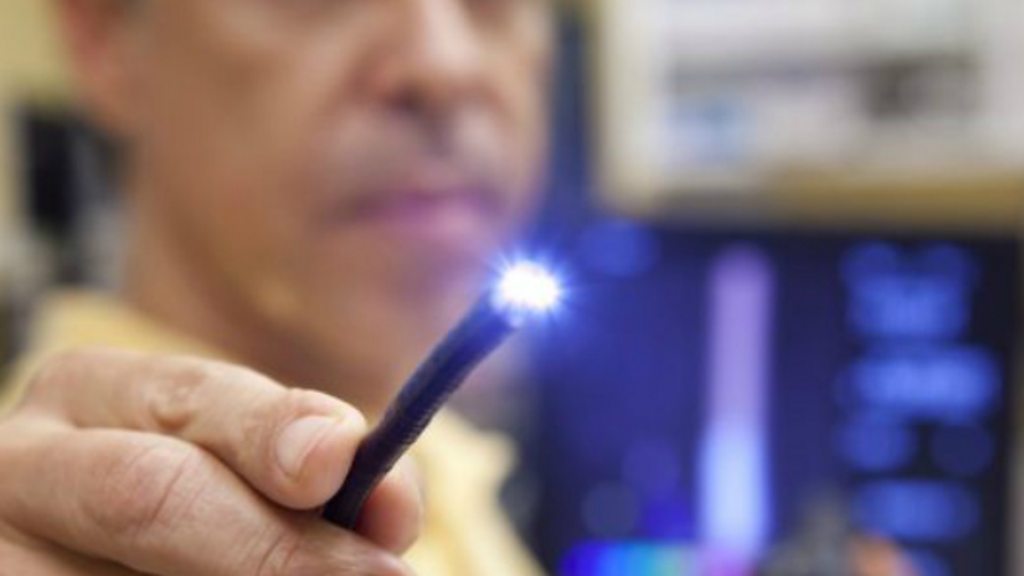New Camera Can See Through Human Body


Scientists have developed a camera that can see through the human body.
The device has been designed to help doctors track medical tools, known as endoscopes, during internal examinations.
Until now, medics have had to rely on expensive scans, such as X-rays, to trace their progress.
The new camera works by detecting light sources inside the body, such as the illuminated tip of the endoscope's long flexible tube.
Prof Kev Dhaliwal, of the University of Edinburgh, said: "It has immense potential for diverse applications, such as the one described in this work.
"The ability to see a device's location is crucial for many applications in healthcare, as we move forwards with minimally invasive approaches to treating disease."
'Tissues and organs'
Early tests have shown the prototype device can track a point light source through 20cm of tissue under normal conditions.
Beams from the endoscope can pass through the body, but usually scatter or bounce off tissues and organs rather than travelling straight through.
That makes it problematic to get a clear picture of where the tool is.
The new camera can detect individual particles, called photons, and is so sensitive it can catch tiny traces of light passing through tissue.
It can also record the time taken for light to pass through the body, meaning the device is able to work out exactly where the endoscope is.
Researchers have developed the new camera so it can be used at the patient's bedside.
The project - led by the University of Edinburgh and Heriot-Watt University - is part of the Proteus Interdisciplinary Research Collaboration, which is developing a range of new technologies for diagnosing and treating lung diseases.
Dr Michael Tanner, of Heriot-Watt University, said: "My favourite element of this work was the ability to work with clinicians to understand a practical healthcare challenge, then tailor advanced technologies and principles that would not normally make it out of a physics lab to solve real problems.
"I hope we can continue this interdisciplinary approach to make a real difference in healthcare technology."
Get news from the BBC in your inbox, each weekday morning
From Chip War To Cloud War: The Next Frontier In Global Tech Competition
The global chip war, characterized by intense competition among nations and corporations for supremacy in semiconductor ... Read more
The High Stakes Of Tech Regulation: Security Risks And Market Dynamics
The influence of tech giants in the global economy continues to grow, raising crucial questions about how to balance sec... Read more
The Tyranny Of Instagram Interiors: Why It's Time To Break Free From Algorithm-Driven Aesthetics
Instagram has become a dominant force in shaping interior design trends, offering a seemingly endless stream of inspirat... Read more
The Data Crunch In AI: Strategies For Sustainability
Exploring solutions to the imminent exhaustion of internet data for AI training.As the artificial intelligence (AI) indu... Read more
Google Abandons Four-Year Effort To Remove Cookies From Chrome Browser
After four years of dedicated effort, Google has decided to abandon its plan to remove third-party cookies from its Chro... Read more
LinkedIn Embraces AI And Gamification To Drive User Engagement And Revenue
In an effort to tackle slowing revenue growth and enhance user engagement, LinkedIn is turning to artificial intelligenc... Read more

